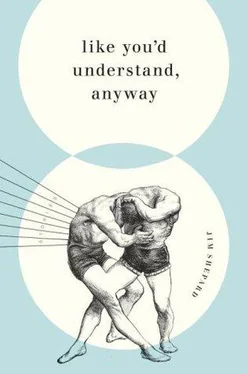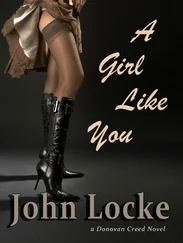“I'm not appealing to you to save her,” she answers. “You know what I'm requesting.”
A few nights later, lying beside me in the darkness, she palms my cheeks and moves her face so close that her lips graze mine.
“Listen to me,” she says. “Don't dismiss me like this.” She moves our bodies to their newlyweds' position. But then she says nothing else.
Henri-Francois brings us the news as we're sitting down to some pigeon, red currants, apricots, and wine: the tribunal, according to the declaration of the jury, and in compliance with the indictment of the public prosecutor, has condemned the said Marie Antoinette, called Lorraine d'Autriche, widow of Louis Capet, to the pain of death, the judgment to be carried out in the Place de la Révolution, its dictates printed and exhibited throughout the Republic.
On the appointed day, my wife is missing when I awake. Our drunken neighbor across the courtyard claims not to have seen her. She's nowhere to be found when I return. The Queen flinches upon seeing the open cart in which she'll ride. She explains she'd been hoping for the enclosed carriage that carried her husband. She apologizes for treading on my foot as she climbs the steps.
My wife does not return that evening, or the next. Henri-Francois notes a missing trunk but mentions nothing else, contemptuous of my agony. Legros takes over the cooking. In the wee hours I occupy my fireside chair, swigging wine. The future unfolds in the flames like a gameboard dotted with opponents' pieces. I envision new laws abolishing the accused's right to any defense; the frightened seeking to outpace one another with the zeal and homicidal efficiency of their patriotism; and prisoners condemned in groups, identities muddled in the confusion, as sons die in the name of fathers, alongside entire families decimated by misspellings and clerical errors. At the scaffold, a nightmarish constancy, with only the actors changing. Chemists. Street singers. Fifteen-year-old servants. An abbé who founded and ran the orphanage for the city's chimney sweeps, most as young as five or six. Carmelite nuns. Peasant women from the Vivarais, unintelligible in their patois and bewildered at their arrest. One boy in a forgeman's cap. One in a hat of otter skin. One already bloodied and bareheaded. One with little guillotines on his suspenders. One who'd drawn in ink on his neck: Cut on the dotted line. The executions proceeding at such a pace that the heads tip from the filled baskets and roll from the scaffold's lip. Never enough in the way of carts, straps, bran, hay, nails, soap for the grooves, or tips for the gravediggers. Baskets changed every two weeks, the bottoms rotted through, the sides chewed by teeth. The machine frequently moved as a menace to sanitation. An old man taking in the great pile of clothing discarded by his predecessors and extending me his compliments, and noting that I must have the most extensive wardrobe of anyone in France.
A man climbs the stairs. He's strapped to the plank. The plank slides forward. The half-moon is brought over his neck. There's a frightful second. His open eyes see the basketful below.
And when the blade comes down, a fiery mist explodes about his eyes. It's radiant with reflected light. The light converts to pain. The pain saturates all that follows. The head suffers for three days and nights, its spark finally extinguished beside its body in the lime pit.
Sulla said he stood before all of Rome and dared to declare: “I am ready to answer for all of the blood I have poured out on behalf of the Republic. I will render an exact account to anyone who comes to plead for a father, son, or brother.” And he said that all Rome was silent at his offer.
What a creature is Sanson! Impassive, standing with his slightly timorous look beside his sinister friend, the black heart of the Revolution. He chops off whatever is brought to him. Does he fear being alone? He eats. He gazes at others. Their heads elude him, as his eludes theirs. Will he in his dotage have visitors, each wanting to touch the blade, peer inside the baskets, lie upon the plank? Will he become the town eccentric who plays the cello badly but remains a good neighbor, puttering with his tulips and relating anecdotes to the curious?
Through years of vigils and crises and alarms that kept men from sleeping, he was never seen unshaven. Insignificance, silence, and dissimulation were his most powerful tools. His machine was a celebration of geometry formally applied, and geometry is the language of reason.
Who presented Pompey's head to Caesar in Egypt? Who presented Cicero's to Antony? History records only whose head was presented to whom. Who did the chopping? Those impossible beings. That species unto themselves.
From his chair Sanson tends the fire and coddles the past. The past for him is his wife. On their first walks their conversation was like the exhilaration of learning itself. When he spoke with her, she lowered her eyes. When he stopped, she lingered until he continued. He blurted during one of their partings that without her he'd be his broken cello, all tunes lost. She smiled when he was in particular need of indulgence. And when her mouth touched him, she smelled like a linen sheet in the sunshine.
In a day or so he knows he'll receive a letter, its hand uneven as though composed on a knee or post: a letter in which she advises him not to be anxious on her behalf, but to honor her steadfastness, which he should have no trouble imagining. A letter in which she tells him she has no counsel to give, and that he should follow those he needs to follow. In which she informs him that she wants nothing in the way of a settlement. In which she confides to him that the time will come when he'll be able to judge the effort she has made to write this. In which she closes by noting that she has no more paper, and that the misfortune that she's awaited has arrived, and that she claps him to her heart.
And even then he'll understand the implication that he could still renounce this life and find her where she suffers. But instead he'll sit in his house, with the face of an absconding debtor. His father told him that if he offered to carry the basket, he shouldn't complain of the weight. His grandmother told him that the tears of strangers were only water. He himself was given a miracle and threw it away. Let his society perish, then, through the ferocity of its factions. Let his city return to its original state of forest. Let his neighbors relapse into the primitive, from which they could one day start again. Let it all go on without him. He was already that head without its body, jolted with the consciousness of its own death. He was already a tiny, bat-winged machine fluttering over a wave of corpses. He was already that empty narrow space between the raised blade and its destination: that opportunity, gone in a tenth of a second, which would never return again.
This book was set in Minion, a typeface produced by the Adobe Corporation specifically for the Macintosh personal computer, and released in 1990. Designed by Robert Slim-bach, Minion combines the classic characteristics of old-style faces with the full compliment of weights required for modern typesetting.
Composed by Creative Graphics,
Allentown, Pennsylvania
Printed and bound by RRD Harrisonburg,
Harrisonburg, Virginia
Designed by Virginia Tan












